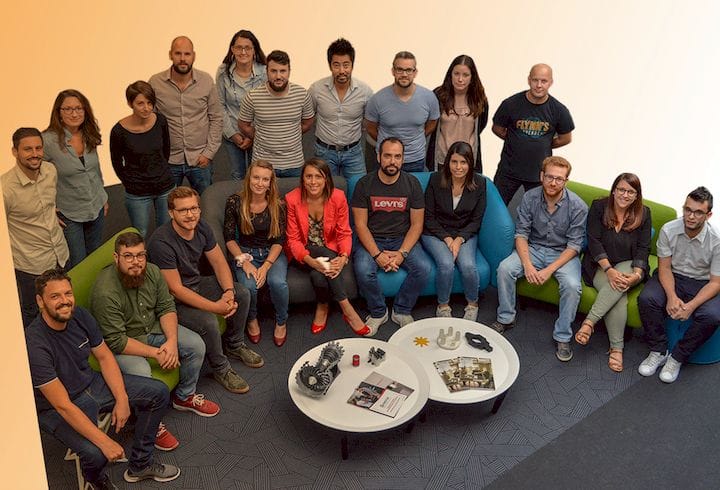![These folks at Neofab will soon be selling ROBOZE equipment [Source: ROBOZE]](https://fabbaloo.com/wp-content/uploads/2020/05/image-asset_img_5eb09bcb41e14.jpg)
I’m reading a press release about another reseller arrangement from ROBOZE, and it got me thinking about how this business works.
ROBOZE is an up-and-coming Italy-based manufacturer of a line of 3D printers capable of 3D printing in high temperature materials. They recently announced the ROBOZE One+400, a smaller machine enabling easier entry into the world of high temperature engineering materials.
This week they announced an arrangement with France-based Neofab to resell ROBOZE equipment exclusively in France. That’s a great move for both companies, but one might wonder why ROBOZE and other companies use resellers as their sales representatives, as opposed to selling machines directly themselves.
There are a number of good reasons for using each of the two approaches. Let’s take a look.
Selling 3D printers directly to the public by a manufacturer is usually done through a website, contact form or other online mechanism (which could be Amazon), is commonly done for lower-priced 3D printers, and only very rarely seen for higher-priced production gear.
One factor is what I might call “reach”. A relatively small company in Italy like ROBOZE would have extremely limited contact with distant markets. Would they have staff in China? Thailand? Could they speak the language of any market? Do they know the legal rules of selling, paying taxes or other regulatory matters in any jurisdiction? Could they efficiently fix a broken machine in a distant land? Do they specifically know who might be potential buyers of equipment in a given country? Likely not.
This is one of the major reasons for using a reseller, as they will have deep knowledge for all of the above. The reseller will then make an arrangement with the manufacturer to sell the equipment into their specific market for a small cut of any sales made. For the manufacturer, this is golden! They have far less work required to enter a market and the results will be much more effective than if attempted by the manufacturer alone. It can also allow very rapid expansion if multiple resellers are signed up in several areas.
Buyers are attracted to resellers for many of these same reasons: they “know” the geography and what it takes to succeed. They bring expertise to the local area and can provide quite a bit of confidence for unsure buyers who worry about matters such as service and support. This is of particular importance with larger equipment purchases involving tricky equipment that may require support, training and service.
This all sounds very good, so why aren’t all 3D printers sold through resellers?
It’s a matter of economics. The profit margin on many lower-cost 3D printers these days is razor thin, as competition continues to drive players in a “race to the bottom”.
When you take those slim margins and attempt to split them with a reseller, either party doesn’t end up with much. In particular, the reseller would not have sufficient revenue to financially support service techs, friendly sales people who look after clients, etc.
Thus many 3D printer manufacturers are relegated to using only “direct” sales. While they certainly gain the full profit on each machine, it dramatically cuts down on the sales potential.
This limitation can be overcome by crafty marketing, where wide publicity, a solid offering and great prices can attract many buyers in spite of the lack of a friendly local reseller. Prusa Research is perhaps the best current example of this approach.
Very occasionally you will see a reseller of low-cost 3D printers, but these tend to be relatively larger operations where many different machines are being resold, and the sum of the slim margins on all of them are enough to justify the reseller’s operational costs.
So today when we look at the new ROBOZE arrangement it makes a great deal of sense: it provides ROBOZE with an immediate and massive boost in capability in the French market, in sales, support, service, and awareness.
Expect ROBOZE to do many more deals like this.
Via ROBOZE











A blog post reveals much of what happens behind the scenes at 3D print service Shapeways.